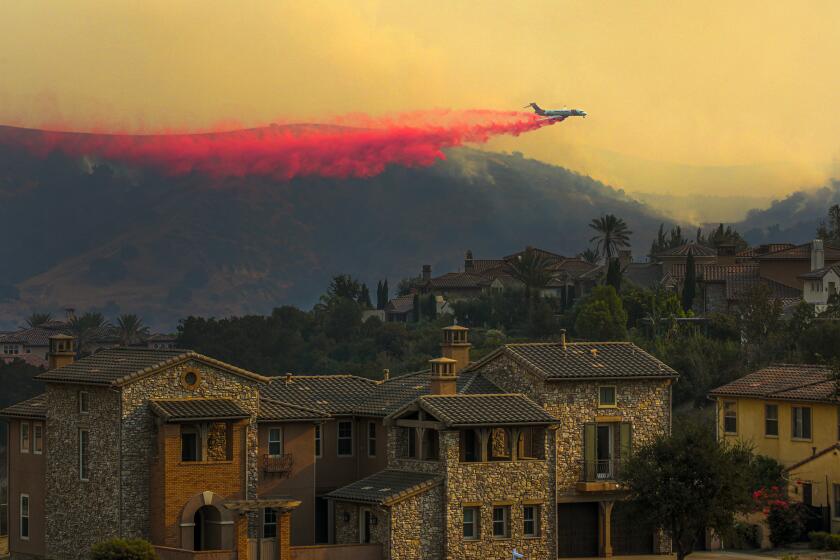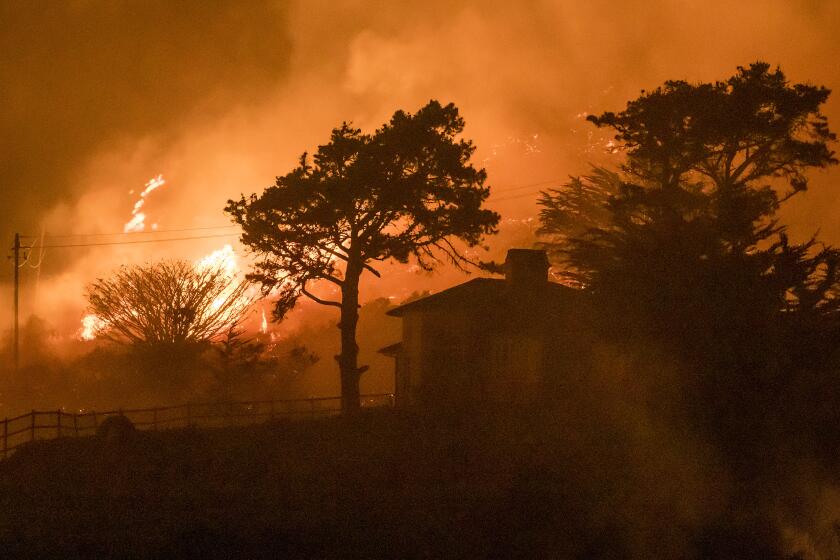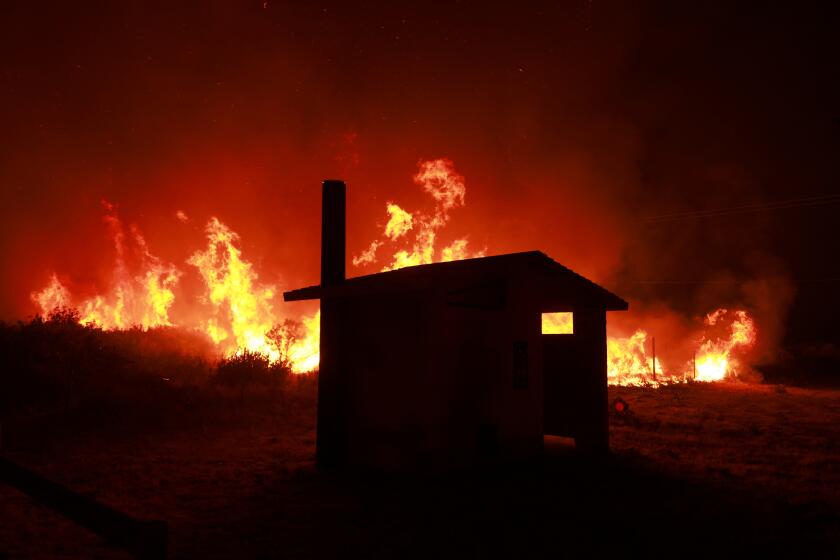California home insurance program accused of selling policies with subpar fire coverage

Above, flames in Napa, Calif., from a wildfire approach horses in a field in 2017.
- Share via
A class-action lawsuit against the California FAIR Plan Assn. accuses the state’s insurance program of last resort of unlawfully selling policies with subpar coverage for fire and smoke damage.
The lawsuit was filed Wednesday in Alameda County Superior Court on behalf of four California residents who seek to represent more than 365,000 FAIR Plan policyholders.
Funded by a pool of private insurers who write policies in the state, the FAIR Plan serves as backup insurance for people unable to obtain coverage from private sources, especially those in high-risk areas where companies are reluctant to provide coverage.
Over the last few years, the state insurer has seen a wave of new policyholders amid extreme and destructive wildfires that have caused insurance companies to leave the state or to stop renewing policies.
As of March, the FAIR Plan was exposed to $340 billion in liabilities because of the high number of policies it had issued.
Hundreds of thousands of Californians have been abandoned by their property insurers because they live in risky fire-prone areas.
The Department of Insurance requires fire insurance policies to cover “direct physical loss” caused by fire and smoke.
But since 2017, the lawsuit claims, the FAIR Plan began limiting coverage after state officials approved a standard policy that, among other provisions, paid for smoke damage only if it was detectable to the unaided eye or nose of an average person rather than requiring laboratory testing.
Dylan L. Schaffer, the attorney for the plaintiffs, said the changes created a policy that is unlawful and fails to provide mandatory minimum coverage for losses caused by a fire. It also places residents at risk to contaminants that may not be visible to the human eye.
“The illegal policy gives FAIR Plan and its member companies like State Farm and Nationwide license to refuse to properly investigate and pay wildfire smoke damage claims,” Schaffer said.
A spokesman for the California FAIR Plan Assn. said it does not comment on pending litigation.
Allstate, the sixth largest homeowners’ insurer in California, has filed for an average 34% rate increase that if approved could take effect later this year.
Because of those changes, Schaffer said, thousands of wildfire claims have been improperly denied.
But the lawsuit also serves as an attempt to hold the Department of Insurance accountable for failing to enforce its own policies.
The lawsuit claims that the department wrote a letter to the FAIR Plan in January 2021, saying the amended fire insurance policy was unlawful because it failed to provide “the mandatory minimum coverage required by California law.” The letter also told the FAIR Plan that it had obtained approval for its policy based on “misrepresentations” and “concealment of material facts,” according to the lawsuit.
The letter directed the FAIR Plan to reform its policies, the lawsuit says, and review claims it had rejected.
The lawsuit claims that the results of the department’s findings were once again confirmed in a May 2022 report on the FAIR Plan’s handling of wildfire claims.
A spokesperson for the Insurance Department did not immediately respond to a request for comment.
Gov. Gavin Newsom and Insurance Commissioner Ricardo Lara have floated proposals to lure home insurance companies back as climate change increases wildfire risks.
Schaffer, who is also litigating a separate suit on behalf of more than 1,000 homeowners in Los Angeles who say the FAIR Plan wrongly denied their claims, said the FAIR Plan continues to sell the same policies despite the department’s findings.
The lawsuit asks the court to order the association to comply with the law and increase the scope of wildfire coverage in all of its California policies.
“We’re not asking for any money, we’re just asking the California FAIR Plan to come into the light, to come in where all its member carriers are,” Schaffer said. “They all investigate smoke damage, they determine smoke damage and they pay for reasonable amounts for remediation.”
More to Read
Sign up for Essential California
The most important California stories and recommendations in your inbox every morning.
You may occasionally receive promotional content from the Los Angeles Times.














